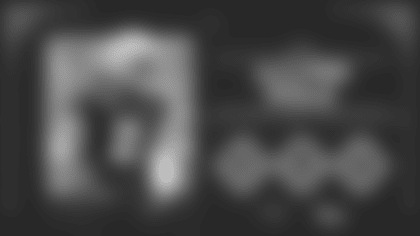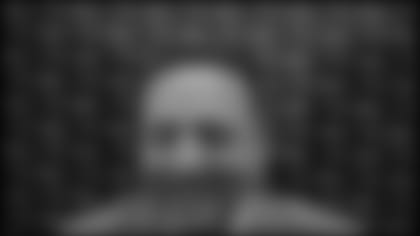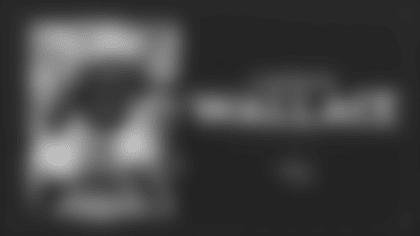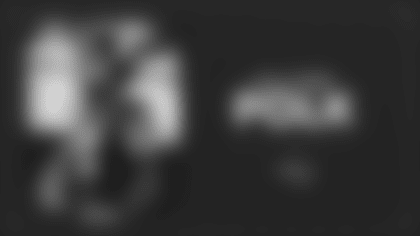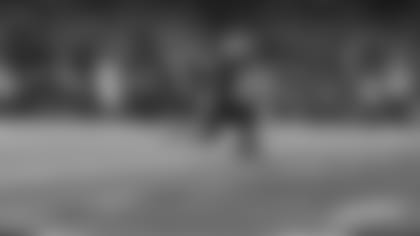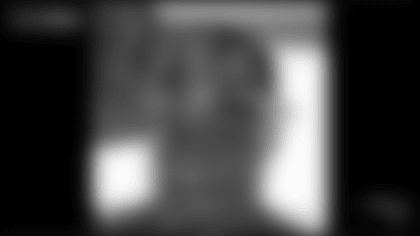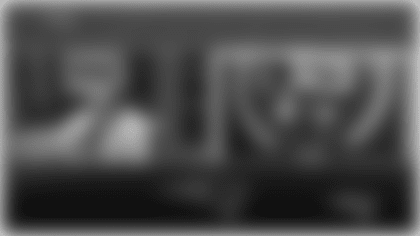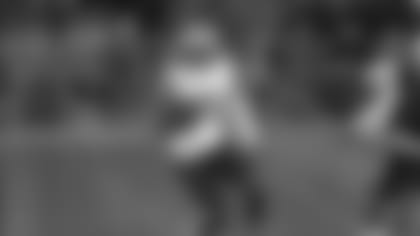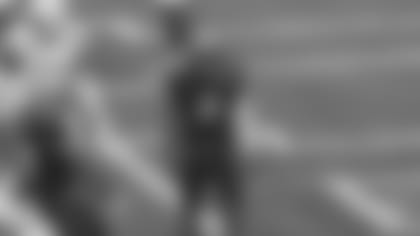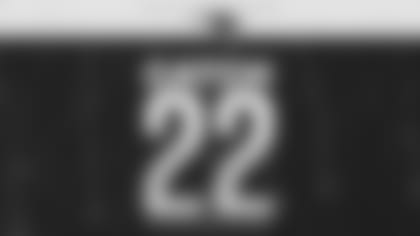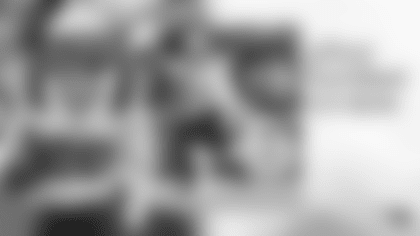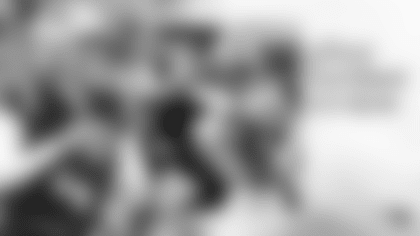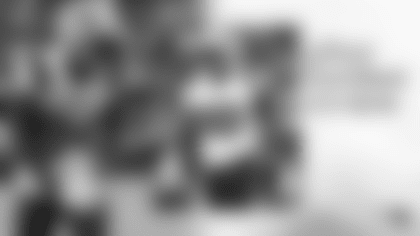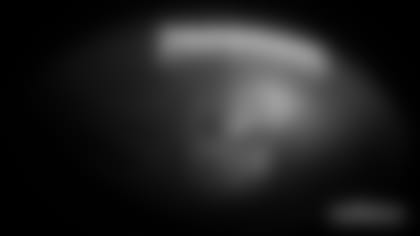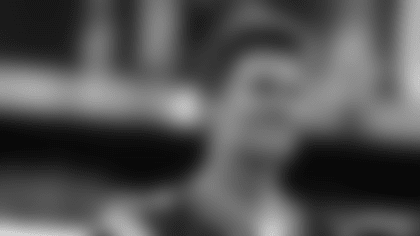You've probably heard by now that the Patriots offense is having a historically bad season in the franchise's history following another home shutout loss to the Chargers on Sunday.
For the first time in their 64-year history, the Patriots have been held scoreless at home twice this season (Week 5 vs. Saints, Week 13 vs. Chargers). New England now ranks dead-last in scoring offense at 12.3 points per game, their lowest scoring average in 33 seasons. The Pats have their worst scoring average since the Rod Rust year in 1990, where the 1-15 Patriots averaged 11.3 points. By most historical accounts, the one-and-done season with Rust was the worst in Patriots history – that's how bad they are on offense. Rod Rust bad.
With that said, it's getting tiresome breaking down the offensive incompetence of the Patriots. That's not to say we won't cover another listless performance by the Bailey Zappe-led offense because we will in detail eventually. The Patriots need a full rebuild on offense, and that might include the offensive system. But let's start somewhere else this week.
After allowing 26 points in a three-game span, all losses for the first time in the Super Bowl era, New England's defense deserves flowers for playing their tails off at 2-10, while we should talk about how close they are on this side of the ball. Admittedly, I've been reluctant to crown the Patriots defense in losses to the Colts and Giants. Although they were competing, the Pats defense made mental errors in coverage and often tackled with poor technique. If they played those same games against better quarterbacks, not Gardner Minshew and Tommy DeVito, the belief here was we would've seen more glaring issues.
However, Sunday's performance in another loss due to the offense's ineptitude was a different story. Yes, the Chargers and rainy conditions helped them with a few key drops on third down. But the Patriots defense was dynamite in this game, with a great rush plan to make QB Justin Herbert beat them from unsettled pockets and an excellent coverage plan on star WR Keenan Allen. This was vintage Belichick: spin the dial, make the QB move off his spot/work through his reads from the pocket, and force Herbert to beat throwing to his receivers not named Keenan Allen.
The Chargers offense was eighth in scoring at 24.5 points per game, while Allen was averaging 101.5 receiving yards per game with three straight 100-yard games. The Pats defense held them to six points, and zero touchdowns, while Allen finished with 58 yards on five catches. Despite playing without star pass-rusher Matthew Judon and first-round CB Christian Gonzalez for most of the season, New England is holding steady at 11th in DVOA on defense.
New England's plan defensively keyed in on Allen as Herbert's go-to receiver, forcing the Chargers quarterback with a good mix of single-high safety (71.1%) and split-safety (28.9%) coverages with stunts/picks in their four-man rushes. The Pats blitzed on only 31.6% of Herbert's drop-backs, with nine five-man rushes and one six-man pressure, meaning this was more of a coverage game plan than an all-out pressure strategy.
To begin the game, the Patriots defense immediately forced a three-and-out with good awareness of Chargers offensive coordinator Kellen Moore's tendency to create favorable situations for Allen by motioning him into different alignments pre-snap. Allen came into the game leading the NFL with 379 yards when put in motion, so the Pats were ready for it.
On the first third down for the Chargers, Moore puts Allen in a short motion into the stack alignment against man coverage. Rather than staying locked into their initial assignments, where Allen would've had favorable leverage on the outside corner (Jonathan Jones) on an in-breaker, Jones and nickel corner Myles Bryant switch on the release for Bryant to take Allen. As he drops off the line into coverage, LB Josh Uche jams Allen to disrupt the timing of the route, allowing Bryant to stay connected and break up the pass on third down.
Here is another example where the Chargers use a pre-snap shift to make Allen the new number one receiver, expecting that to open up an out route against off-coverage on the perimeter. Instead, J.C. Jackson widens to take the deep third in cover three, with Bryant playing a trail technique in the flat to stay underneath Allen's route. Herbert has to check the ball down with the Pats high-lowing Allen at the top of the screen.
The Patriots also had a great two-play coverage sequence on the Chargers most threatening field position following a big punt return by LA. With the Chargers on the fringe of the red zone, Moore dials up a shot play to attack the end zone. The Pats appear to be in a one-cross man coverage. When the number three receiver (Gerald Everett) runs a deep over from the inside slot, safety Kyle Dugger passes Everett off to Jabrill Peppers, and then Dugger rallies into a help position to close the seam route by Allen. The safeties passing off Everett to help to Allen forces Herbert to throw to his one-on-one matchup outside with Jonathan Jones on Jalen Guyton, and Jones has great coverage to break up the pass.
On the ensuing third down, the Pats play man-to-man again with safety help over the top of Allen, who is isolated as the X receiver in a 3x1 formation. New England also runs a replacement pressure where LB Jahlani Tavai blitzes up the middle as the edges in the five-man front drop into coverage, with LB Mack Wilson dropping into the slant window to Allen's side. The Chargers are then running HOSS to the three-receiver side, where Uche's drop off the line helps leverage the juke route from the inside slot, Kyle Dugger blankets the slot fade (converts vs. press), and Jones has the coverage on the hitch outside. Herbert has nowhere to go with the ball, while Uche finishes off the play by closing down Herbert's space as he looks to scramble.
Along with a well-orchestrated game plan to limit Allen, the Patriots defensive staff had the secondary prepared for Moore's and the Chargers staple schemes on several occasions.
In a loss to the Chiefs earlier this season, Herbert hit wide receiver Josh Palmer on a 60-yard completion on a deep post pattern off a gun-action rollout design. With the Chargers moving the pocket, the Chiefs get caught without a deep safety to leverage the post route, leaving a man coverage corner on an island with Palmer—big play.
Los Angeles tried to dial up the same shot play against the Patriots on Sunday, and safety Jabrill Peppers was ready for it. Peppers told Patriots.com that he anticipated the Chargers were running this play pre-snap, so he told Bryant to play outside leverage because Peppers would overtake the post. Peppers was right; he closed off the post, forcing Herbert to throw the crossing route that was well-covered by Dugger, leading to an incompletion.
There are always a few plays you can nitpick with a defense in the modern NFL. This week, a coverage breakdown between J.C. Jackson and Dugger led to a 27-yard completion on third down where the defense had the Chargers backed up against their own end zone. Those are the missed opportunities in terms of field position that Coach Belichick spoke about after the game. Eventually, LA punted later in that drive. But the punt backed the Patriots offense up at their own two-yard line, rather than the Chargers punting from their own end zone, which was a huge swing in field position.
Overall, though, the Patriots defense looked like a well-coached unit, with Belichick's staff winning the chess match against Herbert and Moore. As we spin everything forward to 2024, the body of work suggests that the Patriots should keep their defensive system in place, whether under Belichick or the next regime. This is still a sound, productive defense with good players at all three levels, and imagining this unit with Judon and Gonzalez added into the mix next year is exciting.
If this season is truly it for Belichick, retaining Jerod Mayo and as many pieces as possible from this defensive coaching staff is a top priority. Mayo could be the next head coach in New England, but even if he isn't, officially naming him defensive coordinator makes sense. You don't get this compete level on a 2-10 team if the players aren't buying into the coaching.
"I think I'm speaking for everybody when I say this: everybody respects Coach Mayo," nose tackle Davon Godchaux told Patriots.com. "Mayo is kind of like that alpha male. You got that one alpha male that sticks out in the group. He's going to get a shot (to be a head coach) one day."
In a season filled with bumps in the road, a source of hope for fans is that the Patriots defense is ready to compete for the playoffs as soon as the offense catches up.
Here are our big-picture takeaways on the Patriots offense and quick-hit film notes from the loss to the Chargers After Further Review:
Divvying Up the Blame Pie for the Patriots Offense in Shutout Loss
The Patriots offensive film is so messy that it makes it difficult to evaluate who are the biggest culprits for the results being what they are at this point in the season.
New England is taking a page out of the Jets book where they have a playoff-caliber defense stuck with an offense that can't score. But it's even worse since it's hard to point to building blocks for the future with this unit. At least the Jets have Garrett Wilson. The Patriots have a center (if he doesn't retire), a good running back when healthy (Stevenson), a good slot/gadget receiver when healthy (Pop Douglas), a free-agent guard who they're forcing to play tackle because they ignored their issues at tackle, and a free-agent tight end (Henter Henry).
Depending on the scheme, the next regime could let it ride with the two young guards on the roster, Cole Strange and Sidy Sow. Strange has shown improvement this season if he can cut down on mental errors, while Sow has solid tape for a rookie. Besides those pieces, the Patriots are starting over on offense armed with a top-five draft pick in each round and roughly $75 million in cap space (needs: QB, OT, WR, TE). For a roster builder that knows offense, at least whoever has control of the roster in 2024 and beyond has the ammo to blow this thing up.
In the loss to the Chargers, the Patriots once again had pressure issues up front (36.4% pressure rate). Their drop-back pass game struggles to develop downfield because the quarterback doesn't have time in the pocket, while their play-action concepts are constantly blown up due to pressure.
As for the receivers, the Patriots are working with three pass-catchers who wear coverage in DeVante Parker, JuJu Smith-Schuster, and Henry, while their one separator, Tyquan Thornton, has poor ball skills and struggles at the top of routes. Thornton's speed is a factor, but his shortcomings in all the other areas of receiver play make it challenging to feed him the rock. There are fair critiques of offensive coordinator Bill O'Brien. But it's hard to get on O'Brien when they can't execute simple NFL concepts. Then, there are the quarterbacks, with Bailey Zappe presenting his own problems compared to Mac Jones.
For better or worse, Zappe's performance was a different struggle than Jones's recent film. Although he looked more poised and nimble in the pocket while taking better care of the ball, the switch to Zappe wasn't any more inspiring offensively than we saw with Jones. Zappe's processing, decision-making, and, particularly in the first half, downfield accuracy, made it tough to move the ball. Although he's not at fault for the lack of rhythm and anticipation in the offense since Jones has dominated starter reps in practice, it was apparent that Zappe was unsure of his receiver's routes, leading to pauses in his decision-making.
As we said with Mac, the Pats supporting cast make for an incredibly tough environment to play quarterback. Still, the lack of arm talent and creativity exacerbates those issues. It's not a fun watch right now. Still, like you can't help but wonder what it would be like with a stable O-Line or dynamic receivers on the outside, quarterback play is as much of an issue for this unit as the other areas that need improvement.
There is no longer a chicken or egg debate in New England. Is it the quarterback, the supporting cast, or the scheme? Yes. The answer is yes, all the above.
Quick-Hit Film Notes From Patriots-Chargers
- I'm not in a position to blame a particular coach/player for this. However, on Sunday, the Patriots had more assignment breakdowns in the run game than usual. The worst example was a six-yard loss on third-and-2 on a sweep play to Zeke Elliott. It appeared that C David Andrews thought there was a pin-pull tag, so he pulled around LG Cole Strange, but Strange didn't pin Morgan Fox, who shot in the backfield to blow up the play. It can't happen.
- Bill O'Brien is lucky that the Chargers didn't pick off one of those telegraphed screen passes to DeVante Parker. The one backed up on their own goal line where the Pats went 4x1, then threw a middle screen to Parker, which was close to a pick-six. Way too predictable.
- Although the design still leaves something to be desired, pass protection is the biggest thing holding the Patriot's play-action passing game back. They can't block long enough to hit the downfield concepts they're trying to dial-up. There's pressure all the time on those concepts.
- The Pats only pressured Herbert on 28.9% of his drop-backs. But the D-Line did its job within the game plan, which was to use four-man rushes with stunts to make Herbert reset and then throw while taking away his first read with coverage. The D-Line was expected to compress and keep Herbert inside the pocket, which they did with a passing grade.
- The life of a beat report: I had a great story prepped on how well Mike Onwenu has transitioned to right tackle, and then Khalil Mack came to town. Onwenu allowed a season-high five QB pressures with a sack and four hurries. Mack's inside-out speed rush gave him fits, with Onwenu's untrained footwork at tackle to redirect in space showing up. Onwenu also had a blown block on the play that got RB Rhamondre Stevenson hurt. Tuipulotu was his man. Although he's a tough matchup, Mack was the first high-level edge rusher Onwenu faced since moving to RT. It makes you pause about keeping him there long-term.
- RB Ezekiel Elliott ran hard in a game where the Chargers were all over the line of scrimmage with loaded boxes and run blitzes. But he allowed a sack and two hurries in pass protection. Elliott was brought in to be a plus-pass blocker, and although he has good reps at times, the Derwin James sack was his mental error, and he's been run over often in blitz pickup. The Pats are going to rely on Elliott now without Stevenson. He needs to be better.
- Don't think Trent Brown (Justin Hollins) or Conor McDermott (Mack) got their hands on the Chargers edge rushers on either of their sacks allowed—non-competitive reps. Brown at least has the excuse of playing through a pretty bad ankle injury, but they need better at left tackle.
- WR Tyquan Thornton's speed was a factor in this game, and he created downfield separation on five different routes. However, his ball skills to track the deep ball are tough to watch, and he still takes way too many false steps to cut at the top of his routes. Thornton can use his speed to get open on vertical stems, but the rest of his game is so underdeveloped that the track speed doesn't make an impact. I wonder what his career arc would be if he had a coaching staff that could develop his route running/ball skills and unlock his speed in more space.
- Cole Strange (one hurry) and Sidy Sow (one hurry) were the Pats most effective linemen in this one. Strange gave up too much ground on a one-on-one rep but was solid in pass pro otherwise and is holding his own, blocking the backside of a duo with the action behind Sow and Onwenu. His mental errors are holding him back more than anything physical. Sow didn't get tested much but did enough to pick up a stunt to keep a few plays alive.
- TE Mike Gesicki only played five offensive snaps in a run-formation-heavy plan featuring Hunter Henry and Pharaoh Brown. The Pats, once again, aren't getting enough production from their tight ends, given the resources invested in the position.
- WR JuJu Smith-Schuster can't separate at the first level, but intermediate targets are available if he has a QB who trusts him more one-on-one. Smith-Schuster is a box-out inside receiver, but if the QB doesn't have the confidence to put the ball on him, he's not going to create the separation to invite targets. Parker is the same way—contested/jump balls or nada.
- The Chargers ran into light/neutral boxes on 18 of their 20 rush attempts, with the emphasis on coverage for the Patriots. Excellent job by Jahlani Tavai (three stuffs), Ja'Whaun Bentley (two stuffs), Anfernee Jennings (stuff), and two-gappers Lawrence Guy, Davon Godchaux, Keion White, and Christian Barmore to hold the LAC to 1.7 yards per carry by their RBs.
- Kudos to CB J.C. Jackson for bouncing back after one of his worst performances in a Patriot uniform against the Giants. Jackson allowed three catches for 41 yards on six targets with a pass breakup. It's not perfect, but it's far more competitive and better on the details this week. The question is was it just because it was against his former team?
- CB Jonathan Jones had one of his best games of the year, allowing three catches for 28 yards on seven targets with a pass breakup in the end zone. Jones was in tight coverage all day, including on two shots to the end zone, one where LA attempted a double move to Allen.
- DB Jalen Mills can be a quality depth piece as a box/tight end stopping safety. He showed great awareness of a Chargers staple concept to break up a pass and carried Everett in two-man up the shoot for two high-level reps—a useful player when used correctly.
- DB Myles Bryant takes a lot of heat, and he lost one-on-one vs. Alex Erickson to ice the game. He has his warts in man coverage. But he's involved in so many different coverage schemes and is a big part of what they do in the backend. Wears a lot of different hats.
- LB Mack Wilson has been a serviceable player at the second level. He logged two hurries, a near-INT/PBU, and has really upped his physicality vs. the run to take on blocks. Wilson also made a good play to set the edge on a zone-read concept for a key third-down stop.
- Christian Barmore stat check: QB hit, hurry, stuff. He also was a factor as an interior penetrator for stunt pressure, setting picks for the rush linebackers to wrap around his rush.
- LB Josh Uche spoke about improving his play within the Pats scheme. He logged two hurries, did a good job closing down space when Herbert tried to escape, and logged a TFL. It might not get Uche the recognition he had last year, but I'm sure these coaches are taking notice.
- Rookie DE Keion White registered a QB hit (on a T/E stunt) and a hurry. White needs some offseason work with DeMarcus Covington and Joe Kim to develop a pass-rush plan, and his block recognition will improve. He's a ball of clay right now who needs some seasoning.
- The Chargers switch release from a nub formation put rookie S Marte Mapu in a blender on Gerald Everett's 26-yard reception. Mapu initially had the inside tight end, but Dugger switched with the release, while Mapu didn't, leaving Everett uncovered in man-to-man. Mapu's lack of playing time is due to mental errors as he adjusts to playing a safety role.
- QB pressures: Barmore (2), Uche (2), Wilson (2), White (2), Bentley (1), Dugger (1), Roberts (1); QB pressures allowed: Onwenu (sack, four hurries), Elliott (sack, two hurries), McDermott (sack, hurry), Brown (sack), Sow (hurry), Andrews (hurry), Strange (hurry).
- Coverage: Jon Jones (7/3/28/PBU), Jackson (6/3/41/PBU), Dugger (5/3/16), Bryant (5/4/50/PBU), Tavai (3/3/17), Wilson (3/2/13/PBU), Mills (3/0/0/PBU), Mapu (2/2/33), Peppers (2/2/14).
DISCLAIMER: The views and thoughts expressed in this article are those of the writer and don't necessarily reflect those of the organization. Read Full Disclaimer



